第150章
The tray which brought Katharine's cup of tea the next morning brought, also, a note from her mother, announcing that it was her intention to catch an early train to Stratford-on-Avon that very day.
"Please find out the best way of getting there," the note ran, "and wire to dear Sir John Burdett to expect me, with my love. I've been dreaming all night of you and Shakespeare, dearest Katharine."This was no momentary impulse. Mrs. Hilbery had been dreaming of Shakespeare any time these six months, toying with the idea of an excursion to what she considered the heart of the civilized world. To stand six feet above Shakespeare's bones, to see the very stones worn by his feet, to reflect that the oldest man's oldest mother had very likely seen Shakespeare's daughter--such thoughts roused an emotion in her, which she expressed at unsuitable moments, and with a passion that would not have been unseemly in a pilgrim to a sacred shrine. The only strange thing was that she wished to go by herself. But, naturally enough, she was well provided with friends who lived in the neighborhood of Shakespeare's tomb, and were delighted to welcome her;and she left later to catch her train in the best of spirits. There was a man selling violets in the street. It was a fine day. She would remember to send Mr. Hilbery the first daffodil she saw. And, as she ran back into the hall to tell Katharine, she felt, she had always felt, that Shakespeare's command to leave his bones undisturbed applied only to odious curiosity-mongers--not to dear Sir John and herself. Leaving her daughter to cogitate the theory of Anne Hathaway's sonnets, and the buried manuscripts here referred to, with the implied menace to the safety of the heart of civilization itself, she briskly shut the door of her taxi-cab, and was whirled off upon the first stage of her pilgrimage.
The house was oddly different without her. Katharine found the maids already in possession of her room, which they meant to clean thoroughly during her absence. To Katharine it seemed as if they had brushed away sixty years or so with the first flick of their damp dusters. It seemed to her that the work she had tried to do in that room was being swept into a very insignificant heap of dust. The china shepherdesses were already shining from a bath of hot water. The writing-table might have belonged to a professional man of methodical habits.
Gathering together a few papers upon which she was at work, Katharine proceeded to her own room with the intention of looking through them, perhaps, in the course of the morning. But she was met on the stairs by Cassandra, who followed her up, but with such intervals between each step that Katharine began to feel her purpose dwindling before they had reached the door. Cassandra leant over the banisters, and looked down upon the Persian rug that lay on the floor of the hall.
"Doesn't everything look odd this morning?" she inquired. "Are you really going to spend the morning with those dull old letters, because if so--"The dull old letters, which would have turned the heads of the most sober of collectors, were laid upon a table, and, after a moment's pause, Cassandra, looking grave all of a sudden, asked Katharine where she should find the "History of England" by Lord Macaulay. It was downstairs in Mr. Hilbery's study. The cousins descended together in search of it. They diverged into the drawing-room for the good reason that the door was open. The portrait of Richard Alardyce attracted their attention.
"I wonder what he was like?" It was a question that Katharine had often asked herself lately.
"Oh, a fraud like the rest of them--at least Henry says so," Cassandra replied. "Though I don't believe everything Henry says," she added a little defensively.
Down they went into Mr. Hilbery's study, where they began to look among his books. So desultory was this examination that some fifteen minutes failed to discover the work they were in search of.
"Must you read Macaulay's History, Cassandra?" Katharine asked, with a stretch of her arms.
"I must," Cassandra replied briefly.
"Well, I'm going to leave you to look for it by yourself.""Oh, no, Katharine. Please stay and help me. You see--you see--I told William I'd read a little every day. And I want to tell him that I've begun when he comes.""When does William come?" Katharine asked, turning to the shelves again.
"To tea, if that suits you?"
"If it suits me to be out, I suppose you mean.""Oh, you're horrid. . . . Why shouldn't you--?""Yes ?"
"Why shouldn't you be happy too?"
"I am quite happy," Katharine replied.
"I mean as I am. Katharine," she said impulsively, "do let's be married on the same day.""To the same man?"
"Oh, no, no. But why shouldn't you marry--some one else?""Here's your Macaulay," said Katharine, turning round with the book in her hand. "I should say you'd better begin to read at once if you mean to be educated by tea-time.""Damn Lord Macaulay!" cried Cassandra, slapping the book upon the table. "Would you rather not talk?""We've talked enough already," Katharine replied evasively.
"I know I shan't be able to settle to Macaulay," said Cassandra, looking ruefully at the dull red cover of the prescribed volume, which, however, possessed a talismanic property, since William admired it. He had advised a little serious reading for the morning hours.
"Have YOU read Macaulay?" she asked.
"No. William never tried to educate me." As she spoke she saw the light fade from Cassandra's face, as if she had implied some other, more mysterious, relationship. She was stung with compunction. She marveled at her own rashness in having influenced the life of another, as she had influenced Cassandra's life.
"We weren't serious," she said quickly.